Disclosure: Meeple Mountain received a free copy of this product in exchange for an honest, unbiased review. This review is not intended to be an endorsement.
I would say Lacuna sneaks up on you, but the effect sets in pretty quickly. Maybe it only snuck up on me. This review copy was a surprise, the first time in my tenure at Meeple Mountain that a publisher has proactively sent me something without prior interaction. To my eternal shame, I think I might have even been a touch reticent. A game in a tube? In this decade?
Whatever reservations I had began to crumble during setup. After laying out the cloth mat, the still surface of a pond at night, you load all of the wooden flower tokens into the tube. You shake them up and pour them out through a slot in the top, the colors cascading down onto the table.

This had a palpable effect on me. As Anton Ego’s first taste of ratatouille brought him back to his childhood, so the act of pouring those flowers out awakened something long-dormant in me. I have never played a game where the setup was part of the fun.
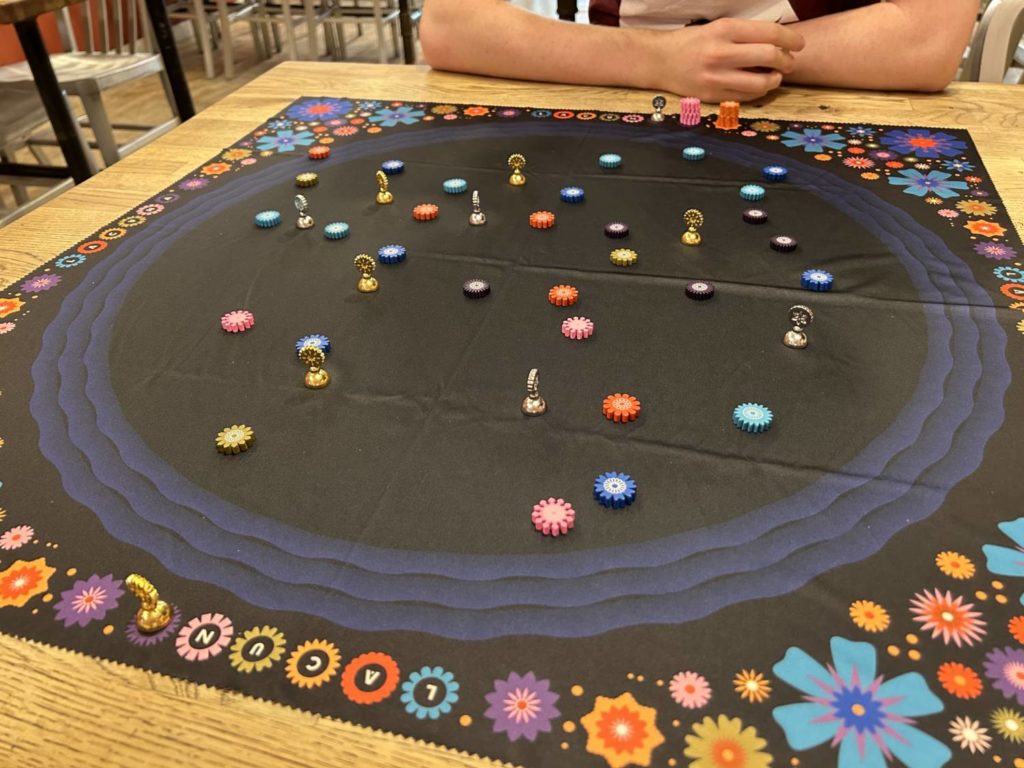
We went over the rules, which are incredibly simple. Imagine a line between any two matching flowers on the surface of the pond. If that invisible line is uninterrupted, you can place one of your six metal figures anywhere along it, claiming the matching pair in the process. You and your opponent exchange turns in this way, until all twelve figures are out.
At that point, all remaining flowers on the board go to the player with the closest metal piece. Lacuna has quietly been an area control game the entire time, one that can be fought out over millimeters. Whichever player has the majority of pieces in the majority of colors is the winner.
After one quick, clumsy exchange in that first game, my coworker and I grew quiet. I said, “This…Is this great?,” to which Josh readily replied, “This is excellent.”
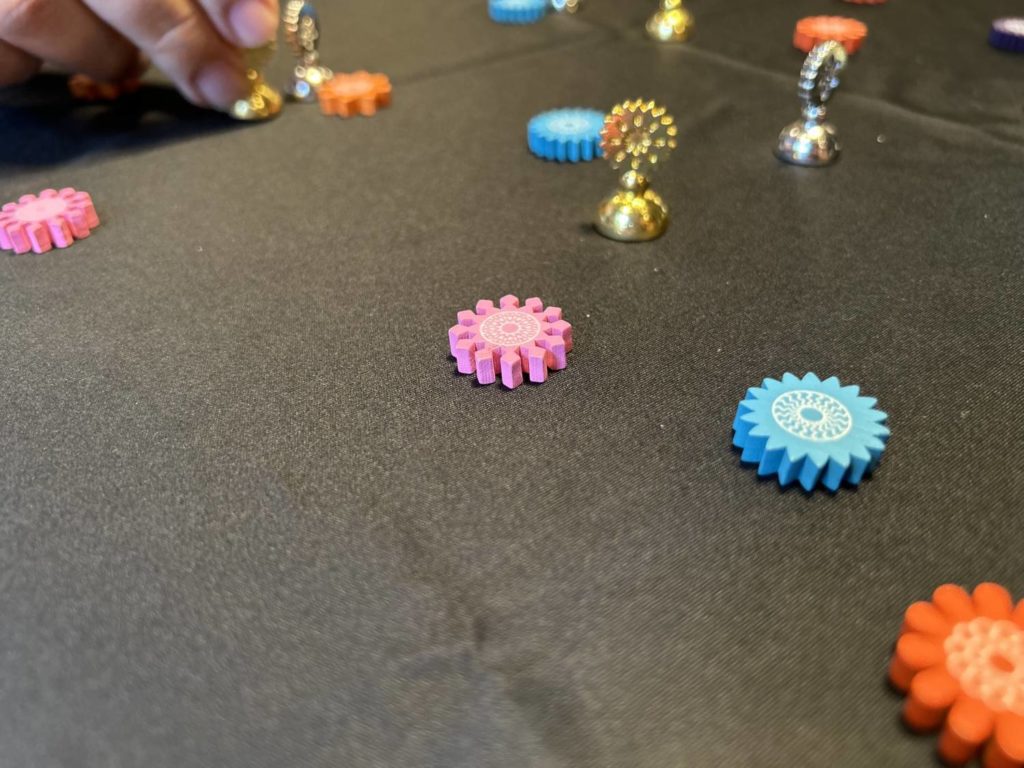 The bright colors, tactility, and crystalline ruleset of Lacuna work together to evoke a childlike state of play. A sense of wonder and exploration, a sense of joy, emanates from this unassuming cardboard tube. It’s infectious, and undeniable. There is intangible magic at work here, magic that gets to the very heart of why I love playing games with people.
The bright colors, tactility, and crystalline ruleset of Lacuna work together to evoke a childlike state of play. A sense of wonder and exploration, a sense of joy, emanates from this unassuming cardboard tube. It’s infectious, and undeniable. There is intangible magic at work here, magic that gets to the very heart of why I love playing games with people.
Lacuna takes maybe twenty minutes, including the teach, setup, and teardown. It’s a quiet experience, but it isn’t the quiet of many modern board games. It isn’t frantic. Lacuna is meditative. You peacefully ruminate on the implications of putting your little metal figure here versus over there.
As you play more, you learn to read the board. You start to see the shifting options, and their future implications. There are “Good move”s. There are “I was hoping you wouldn’t see that”s. There are “Ahaha, yesssss”es. There are six moves, and you’re done.
I was worried about writing this review, because I do not trust words to convey the quality of Lacuna. The truism that “Writing about art is like singing about architecture” is dumb, all art exists in reaction to all other art, but words don’t feel like enough. I need you to see my face, and hear the inflection in my voice, I need you to see the glint not only in my eye, but in the eye of each and every person I’ve played Lacuna with. Words are what I’ve got, though, so here we are. Lacuna is a wonder. I’ve played better games, but I’ve rarely played anything that felt this good, this magical.
Lacuna is something special.
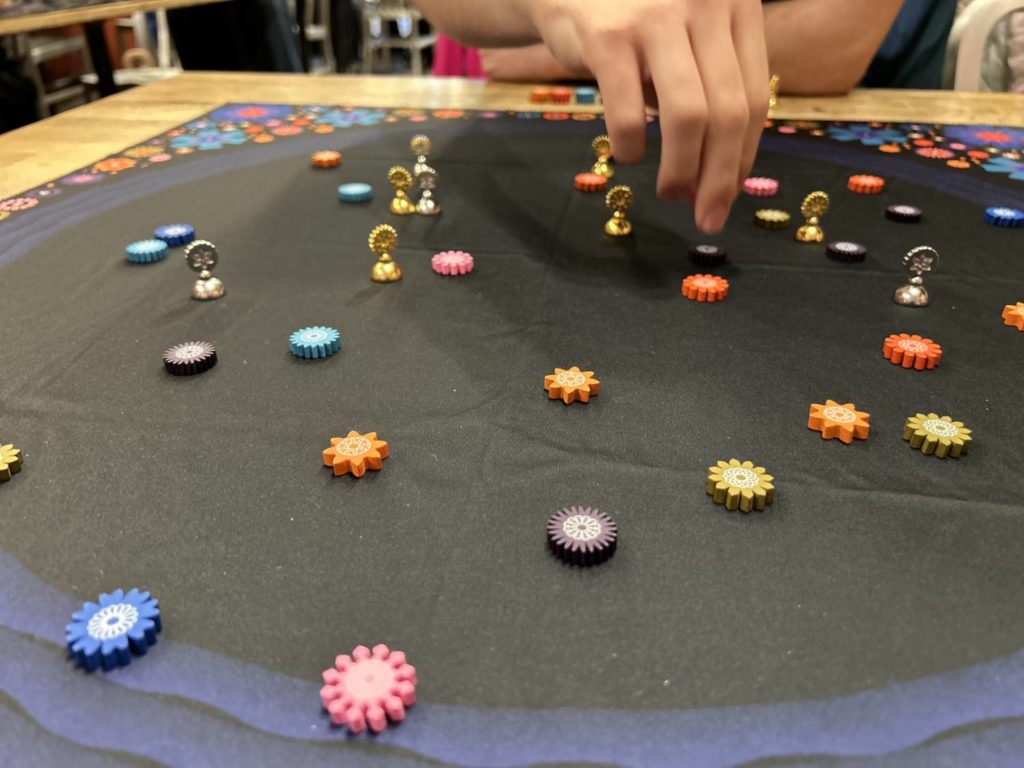


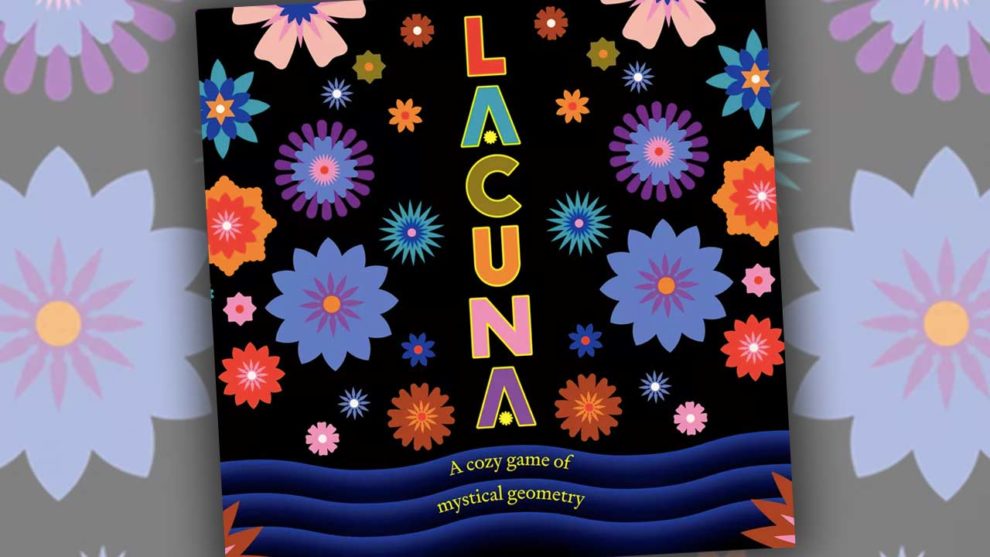




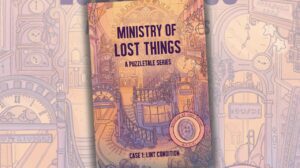




Add Comment